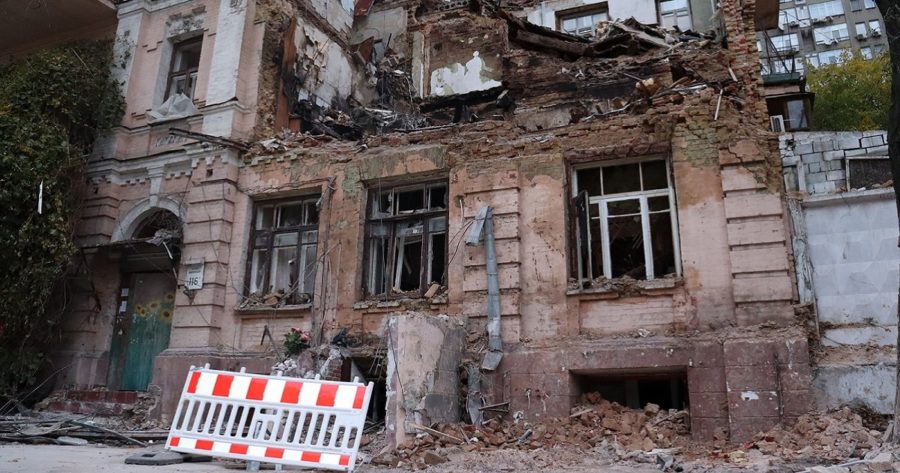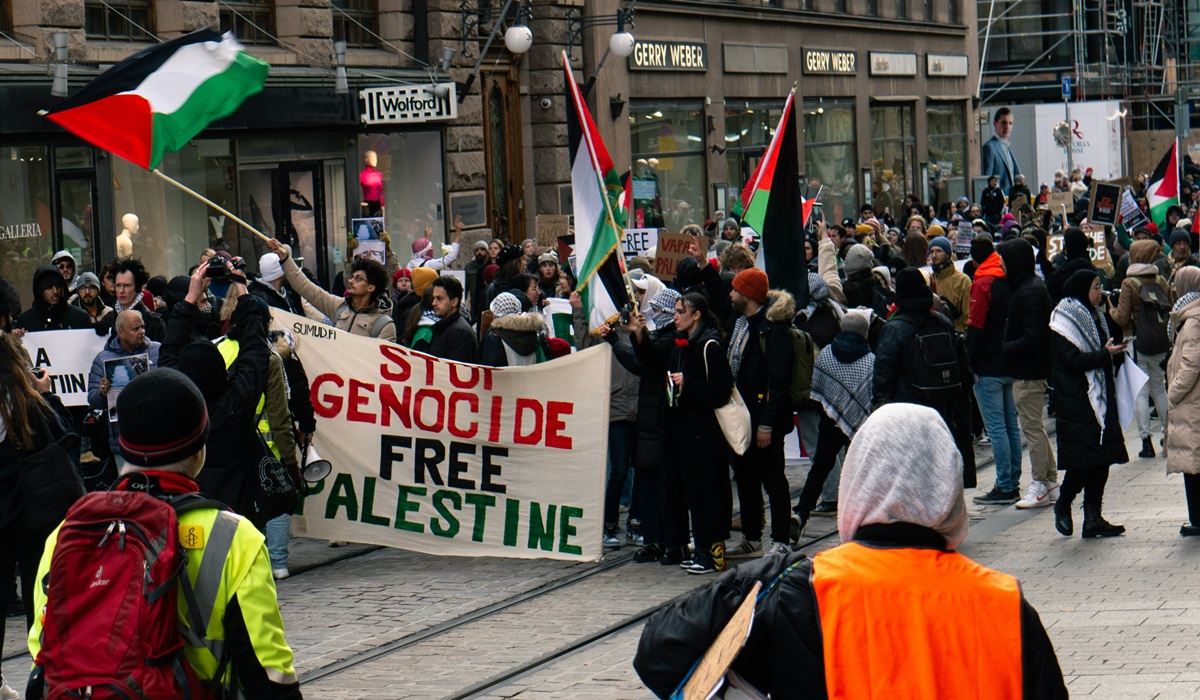Ukraine: Winter Must Not Be Used As A Weapon Of War
- Contributor
- Europe
- Trending
- World News
- October 20, 2022

Attacks on civilian infrastructure needed for water, electricity and heating is increasing humanitarian needs and could further displace thousands across Ukraine and into neighbouring countries this winter.
Becky Bakr Abdulla
Specialist Adviser Media and Communication
Norwegian Refugee Crisis
Phone: +47 41613766 | Twitter: @BeckyBakr
“The recent escalation of attacks against civilians and infrastructure is leaving the most vulnerable in desperate conditions as winter starts to bite. As the weather worsens, people are going to face the desperate choice of staying where they are without basic needs or packing their bags and moving to somewhere else in Ukraine or into neighbouring countries,” said Carlo Gherardi, Regional Director for the Norwegian Refugee Council (NRC) in Central and Eastern Europe.
“Attacks on civilians and civilian infrastructure must stop. Human suffering is being prolonged, and as temperatures continue to plummet, humanitarian needs will increase. All warring parties must respect international humanitarian law and ensure that civilian lives and civilian infrastructure are protected throughout this conflict. Winter must not be used as a weapon of war.”
According to Ukraine’s government, 30 per cent of its energy infrastructure has been hit since the intensified missile strikes since October 10, leading to electricity cuts and blackout plans.
“We are still working with our partners to provide critical relief items to people living in active conflict areas in the east, but we are now seeing increasing needs across the country due to widespread infrastructure damage, and it will only get worse. There needs to be concerted and coordinated efforts across the humanitarian and development sector if we are to get people back to their homes safely and enable them to stay. We cannot work on effective solutions for supporting displaced people while these attacks continue,” said Gherardi.
Lack of water, heat or shelter in Ukraine could force many to flee across the border into neighbouring Poland, Moldova and Romania, communities already hosting significant numbers of Ukrainian refugees, and themselves living through the European cost-of-living crisis.
In Poland, it is estimated that the number of new refugees from Ukraine could range from 500,000 to 750,000 before the end of the year, with half remaining in Poland while others move onwards to other European countries.
In Moldova 40,000 new refugee arrivals are expected over the winter, in addition to the 90,000 already present in a context where 70 per cent of refugees are hosted by local families. Whole community support is needed to upgrade poorly insulated houses and support access to heating systems and winter items. Temperatures are already below zero, placing the life of thousands of people at risk. Moldova is also dealing with 30 per cent inflation affecting the host community’s capacity to meet their own winter needs and to support refugees.
- Photos can be downloaded for free use here.
Facts and figures:
As a result of widespread hostilities in Ukraine, millions of people have fled from their homes, including an estimated 6,975,000 displaced inside Ukraine and up to 7,643,944 people who have fled to neighbouring countries or further afield across Europe.
In Poland, NRC works almost entirely through partners, with the exception of the East Warsaw transit site, which NRC has been directly managing since 1 October 2022. With national organizations, NRC is providing Education, Information, Counselling, Legal Aid and Multi-Purpose Cash Assistance (MPCA).
In Poland, gaps between the country’s social protection and refugee needs are massive with 30 per cent of refugees currently hosted by Polish families – a figure which is steadily decreasing as fatigue sets in. These households are also struggling with cost of living and spiking energy costs. There is a growing concern that introduction of fees for stays in collective shelters, which are used by the most vulnerable, combined with a general hosting fatigue, will further exacerbate the dire situation of thousand more refugees seeking refuge in Poland and could potentially put them at risk of homelessness.
In Moldova, NRC is working with a range of national and local partners to provide winterization assistance, including provision of bedding, mattresses, blankets, and warm clothes, as well as rapid insulation and improvements to winter proof homes. NRC teams in Romania will work through ADRA, a national partner organisation, to provide bedding and small items to refugees in collective shelters and for those living in host communities, in addition to provision of heaters to households in rented accommodation.
In Ukraine, NRC has both direct implementation and is working with and through our national and local partners, such as Vostok SOS, SSS, Luhansk Association of Organisations of Persons with Disabilities, League of Business and Professional Women and R2P to provide emergency relief assistance and services. Our winter response will be focused towards internally displaced persons in collective shelters and people in remote or rural areas. Geographically, NRC will target winterization assistance to the North (Chernihiv, Makhariv, Borodyanka), East (Kharkiv), West (Lviv, Ternopil), and South (Odessa, Mykolaiv) of Ukraine.








